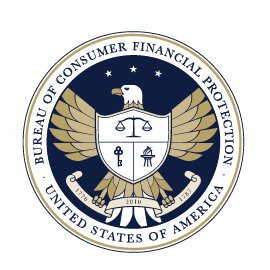 In a follow-up to an advisory jury’s verdict, finding that a law firm’s pre-suit collection letters contained “false, deceptive, or misleading representations or means in connection with the collection of a debt” while rejecting a claim that the firm’s attorneys were not meaningfully involved in the debt collection process in violation of the FDCPA, the CFPB filed its proposed findings of fact and conclusions of law on June 15, suggesting that the jury’s verdict was misguided.
In a follow-up to an advisory jury’s verdict, finding that a law firm’s pre-suit collection letters contained “false, deceptive, or misleading representations or means in connection with the collection of a debt” while rejecting a claim that the firm’s attorneys were not meaningfully involved in the debt collection process in violation of the FDCPA, the CFPB filed its proposed findings of fact and conclusions of law on June 15, suggesting that the jury’s verdict was misguided.
Instead, the CFPB asserted that the applicable facts and law support a conclusion that attorneys with the law firm were in fact not “meaningfully involved” as it relates to the individual specifics of each of the alleged 4.2 million letters sent during a six-year period.
A copy of the CFPB’s Proposed Findings of Fact and Conclusions of Law is available here.
In April 2017, the CFPB commenced an enforcement action against the law firm in the U.S. District Court for the Northern District of Ohio (Consumer Financial Protection Bureau v. Weltman, Weinberg & Reis Co., L.P.A.) alleging that collection letters being sent out by the firm suggested to its recipients that they were from an attorney although no attorney with the firm had been “meaningfully involved” in sending the letters.
While the verdict returned answered in the affirmative whether the preponderance of the evidence demonstrated that the initial demand letters at issue being sent by the firm “contained any false, deceptive, or misleading representations,” the verdict also concluded that the CFPB had failed to prove that the firm’s attorneys were not “meaningfully involved” in the debt collection process being challenged.
The jury’s verdict is only advisory and may be accepted or rejected by the Presiding Judge, (see Rule 39(c)(1)), who will also consider the firm’s proposed findings of fact and conclusions of law, to be filed June 29, in making his ruling.
Specifically, the CFPB’s proposed findings of fact outline the collections process of the firm, which reflects that when the firm is retained, accounts for collection are assigned to a collections department with no staff attorneys directly in such department.
Thereafter, the CFPB suggests, automated “scrubs” are performed to identify certain flags that would affect the appropriateness of commencing collections after which client-provided data is then populated in the form letters at issue by a vendor who then mails the letters out. According to the CFPB, the letters suggest attorney involvement by including the firm’s letterhead and signature line and by referencing and identifying various potential and escalating legal consequences for failure to respond and pay.
Pointing to survey evidence presented at trial, the CFPB maintains that the nature and content of the letters would lead a “significant” number of consumers who received the letters to believe a lawyer with the firm had reviewed his or her specific account and then sent the letter. The significant number? According to the CFPB’s survey, conducted by its expert Dr. Ronald Goodstein, 40 percent of all consumers surveyed had such belief upon being presented with exemplars of the firm’s letters in issue.
However, the CFPB maintains that the facts demonstrate no attorney with the firm reviews the specifics of an individual account or an individual letter prior to it being sent. The CFPB concludes that no professional judgment is formed regarding the accuracy and propriety of the collections of a particular debt.
Instead, the CFPB points to trial testimony to demonstrate that the firm’s lawyers’ involvement, while not completely absent from the collections process, is more peripheral and includes “onboarding” new clients by reviewing sample account level documents such as applicable terms and conditions, for a particular pool of debt being placed for collection.
The lawyers also, according to the CFPB, discuss the accuracy of the data and information to be provided by the client and receive written assurances and warranties from clients concerning the accuracy of accounts placed for collection. Further, the lawyers create certain policies and procedures related to the firm’s collections process while also overseeing compliance with such policies. The lawyers also created the automated “scrub” process and employed and drafted the letter templates in issue.
The CFPB asked the Court to conclude from its proposed facts that the firm violated the Fair Debt Collection Practices Act. The CFPB suggests that the jury’s verdict that the letters in issue contained “false, deceptive, or misleading representations” in and of itself warrants judgment in its favor.
Despite the jury’s verdict that the firm’s attorneys were meaningfully involved, the CFPB continues to contend that the firm and its attorneys were not “meaningfully involved” in the sending of the letters in issue. This is because, the CFPB argues, that the firm’s attorneys “did not review consumers’ accounts, form a professional judgment that the particular consumer’s debt was due and owing, or determine that sending a letter was appropriate before the firm sent to consumers millions of collection letters on law firm letterhead that were signed by the firm.”
Acknowledging that the jury’s verdict reflects that the firm’s attorneys were “involved in the ‘debt collection process’ – for example, through drafting policies, having onboarding discussions with potential new clients, etc.,” the CFPB discounts its weight, suggesting that the Court’s instructions and jury slip were vague and ineffective.
Although the jury was “instructed that ‘what constitutes sufficient involvement to be ‘meaningfully involved’ depends on the circumstances in each case’ and that there is no minimum standard,’” the CFPB suggests that “courts have been clear for years that the attorney must be professionally involved in the debtor’s file, which includes reviewing the consumer’s particular circumstances and making a professional judgment that the debt is due and owing” in order to be “meaningfully involved” and that the firm’s attorneys’ involvement was insufficient under the FDCPA.
The CFPB’s filing sheds light on the jury’s verdict reached, suggesting that perhaps while the jury may have concluded that the letters in issue falsely conveyed that they were penned by a particular attorney who had personally reviewed the factual specifics of the account at issue, the firm’s attorneys were involved in the overall collections process employed to such a degree that the attorneys were “meaningfully involved” in the sending of the letters.


